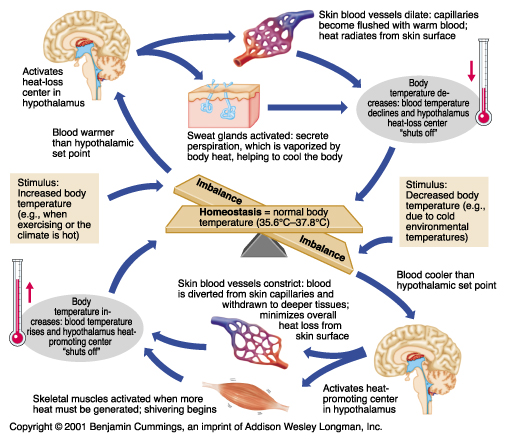Fever is a symptom, not an illness. Having a fever is actually a sign that the body’s immune system is awake and fighting an infection. Fever can be associated upper respiratory tract infections, flu, ear infections, roseola, tonsillitis, urinary tract infections, chickenpox. or overheating. Rarely fever can be associated with severe infection like sepsis, meningitis, autoimmune disease and leukemia. By definition teething doesn’t cause fever.
Always use a thermometer to measure temperature. Using your hand to “feel” is not accurate. A temperature above 100.4°F (or 38°C) is considered a fever.
Use a digital thermometer if you have one. Between birth and 3 years of age, a rectal temperature reading is recommended. At 4 years and older, you can use an oral temperature reading. Axillary (armpit) readings are not accurate. Make sure to label your thermometers with “rectal” or “oral” so you do not cross-contaminate.
You can also use a temporal thermometer or a tympanic (ear) thermometer. However, tympanic thermometers are not accurate in children under 6 months.
Let us learn about how the body regulates it temperature, it is called thermoregulation
Thermoregulation
For normal functioning of the body, temperature is maintained between a narrow range of 36.5° to 37.5°C (97.9° to 99.5°F) Hypothermia is defined as <35.0°C (95.0°F). This condition can potentially lead to cardiac arrest, brain damage, or even death. Hyperthermia/Heatstroke is defined as a temperature of 104°F (40 °C) or higher, can cause brain damage or even death. Both conditions require immediate treatment. Thermoregulation is a complex and interesting topic as illustrated.

From evolutionary point of view, humans may not be the fastest animal, but we are best endurance runner on the planet, that is due to our body mechanics and ability to cool body by sweating. https://www.businessinsider.com/how-humans-evolved-to-be-best-endurance-runners-2018-3?amp
Tips for treating fever:
- Have the child wear light clothing
- Encourage drinking lots of fluids. You may try giving the child popsicles if they are of age.
- Try a cool bath
- Try using a fan if the room is warm
- Do NOT give your child aspirin, as this may lead to upset stomach, intestinal bleeding or Reye syndrome.
- Tylenol (acetaminophen) can be given to children 2 months and older every 4-6 hours as needed. Dosing is weight-based, see chart below.
- Motrin (ibuprofen) can be given to children 6 months and older every 6-8 hours as needed. Dosing is weight-based, see chart below.
When to call the pediatrician:
- Fevers last for >24 hours in children under 2 years of age or >3 days in children 2 years and up.
- Patient is an infant
- Has associated symptoms: ear tugging, sore throat, cough, vomiting, diarrhea, rash, lethargy, poor urine output (less than 4x/day), poor fluid intake
- You believe the child is having a febrile seizure


Information from Healthychildren.org




